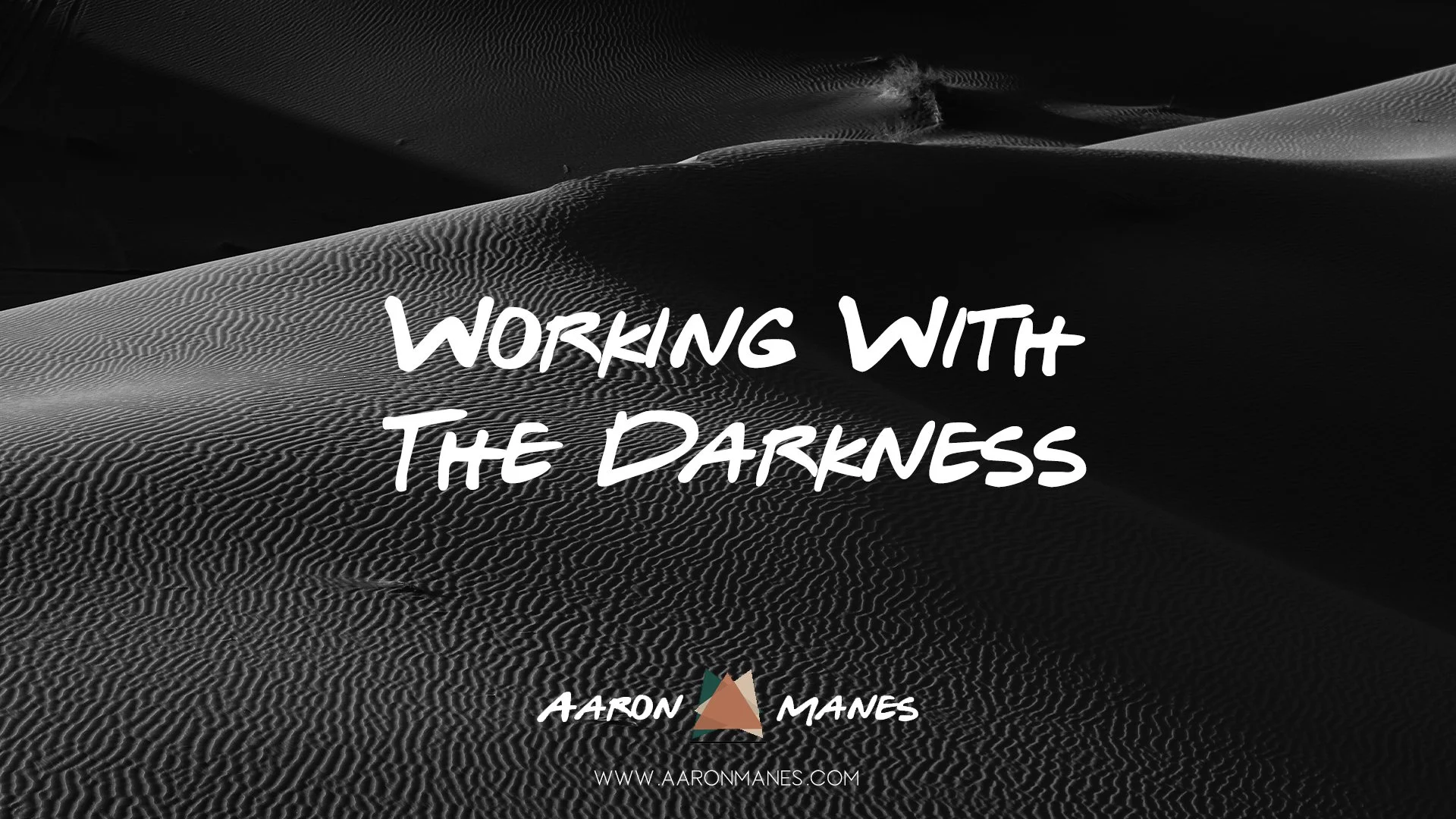Working With The Darkness
When I was a kid, I wasn’t especially afraid of the dark in the “monster under the bed” kind of way, but I was definitely uncomfortable being outside at night, especially alone. The sounds, the shadows, the unknowns. I often had the sense that someone or something might be out there, waiting. Darkness felt like a space to avoid, not something worth venturing into.
Part of my story—which you may or may not know—is that my mom died from Alzheimer’s. She was diagnosed in her early 60s and lived for eight years in various stages of connection and disconnection. That journey was one of profound confusion, frustration, and grief. In the past week, I’ve talked with several friends who are either entering that kind of journey with a parent, or grieving its aftermath. It’s deeply painful to watch the light fade in someone you love. The darkness that descends is not just theirs—it becomes your own, too.
Lately I’ve been listening to Barbara Brown Taylor’s Learning to Walk in the Dark. In it, she shares a realization about God: that while we’re often told God is found in the light, many of our deepest encounters with the Divine happen in the dark. Religion may try to split things—light from dark, good from bad—but God is not divided like we are. Love is not divided. Love lives in both the light and the dark.
Like many of you, I know there are still parts of my own inner work that lie ahead. The other night, I was out running and had just slowed to a walk when I noticed an alley. It was lined with tall privacy fences, lit intermittently by lights, creating what looked like a hallway. For about 50 feet, the path was clear and visible. But at 51 feet, the light stopped—and the rest was engulfed in darkness. I stood there, knowing that beyond that point, I couldn’t see what was next. And still, something in me felt invited forward. Invited into the unknown. Invited into the very thing I often resist most.
In Enneagram language, walking toward the darkness might feel like:
doing something wrong (1)
acting on behalf of your own needs (2)
allowing for failure (3)
facing your ordinariness (4)
not knowing (5)
proceeding with uncertainty (6)
embracing limitation (7)
being vulnerable (8)
being open to conflict (9)
I don’t want to walk into the darkness any more than you do. But I know I’ll need the right kind of support to do it—safe community, internal and external non-judgment, contemplative wisdom, maybe a sponsor and definitely some courage. I’ll need to listen for what’s mine to do next. I’ll need to trust that love isn’t only waiting on the other side of the darkness—but is already there, walking with me through it.

